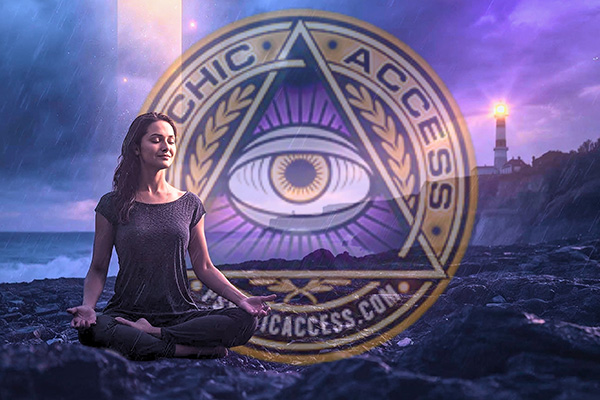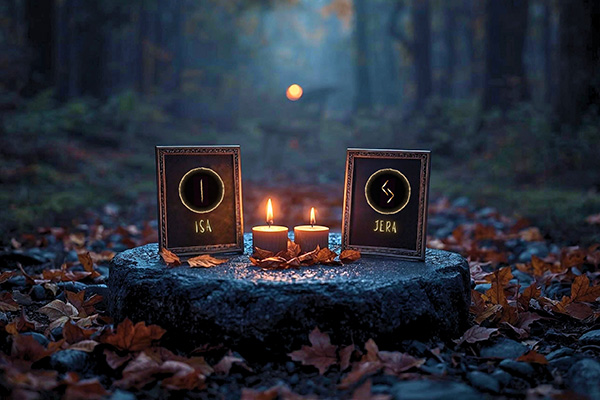self-healing
Tune Into The Guidance Of Your Emotions
 I believe our emotions are an additional ‘sense’ we use as a means of interpreting our life experiences, in the same way the normal five senses enable us to perceive and understand the world around us. Our ‘emotional sense’ help us make decisions about our preferences all the time.
I believe our emotions are an additional ‘sense’ we use as a means of interpreting our life experiences, in the same way the normal five senses enable us to perceive and understand the world around us. Our ‘emotional sense’ help us make decisions about our preferences all the time.
For example, I love chocolate. My sense of taste tells me that chocolate is for me! It’s a very clear and obvious signal from my taste buds to my brain. We receive and process stimuli all the time and our senses help us to ‘make sense’ of that input.
Your emotions are also giving you information about your preferences and if we listen and pay attention, we can gain a lot of guidance from it. Our emotions don’t just come from nowhere. They arise in direct response to stimuli or input, just like our senses do.
I have also heard emotions described as an internal guidance system, or our inner compass, which helps us decide what we want to create more of, and less of, in our life. We sometimes get confused though, because just like the other senses, we have different preferences.
For example, some people love coconut desserts, but I detest then. Not thanks, keep your coconut out of my chocolate! The thing is, I’m not confused about the fact that I don’t like coconut. I also don’t feel I have to change my preference because other people love coconut. And I also don’t force myself to eat it, just to make other people happy.
When one of our five physical senses tells us something we tend to listen, because it’s visceral. We feel it undeniably in the body. Emotions are no different!
Reclaiming The Voice Of Your Inner Child
 I always sing with my yoga students at the end of class. I used to work in the entertainment industry as a singer, dancer, and actress. Because of that, I feel confident singing in front of people.
I always sing with my yoga students at the end of class. I used to work in the entertainment industry as a singer, dancer, and actress. Because of that, I feel confident singing in front of people.
Growing up, I was always full of joy despite my dysfunctional and rather glum family. Of course, they didn’t appreciate my natural exuberance. They certainly didn’t like that I sang all the time because it represented a lightness of being they had long since given up on.
Like many dysfunctional families, they put me down all the time. They told me that I couldn’t sing and that I sounded awful. But, as with all the other negative, hurtful things they tried to convince me of, I did not believe them.
I kept singing anyway, which irked them. I continued to sing and dance, and I even wrote, produced, directed, and starred in my own musical when I was eleven.
Now I’m not saying I had a good voice as a kid. I really don’t know if I did. But, loving to sing, some voice lessons and lots of joy certainly helped me become a relatively good singer.
One day, after my yoga class, a student came up to me and told me I had a beautiful voice. I thanked her. I often have people compliment my singing voice after class.
The student then told me her family told her she had a bad singing voice when she was a child so she stopped singing. She then mentioned other abuses she received by her cruel family.
Finding Calm And Clarity With Psychic Access
 These days, our devices overflow with superficial noise, while our hearts and minds long for meaning, calm, and a sense of hope and purpose. The world has become so much louder, faster, and more uncertain since we offered our first readings 20 years ago.
These days, our devices overflow with superficial noise, while our hearts and minds long for meaning, calm, and a sense of hope and purpose. The world has become so much louder, faster, and more uncertain since we offered our first readings 20 years ago.
We asked our team of psychics and mediums what they sense around the current state of the world, and the feedback was almost unanimously the same: the energy of the current moment feels dense, heavy, and for some even muted…like a global fatigue.
But this is not an intense energy shift that has struck suddenly, like we experienced back in 2007 with the global financial crisis. Instead, these days, there seems to be more of a quiet exhaustion that seeps into everyday life and weighs us down.
Economists and politicians may measure the current state of the world in numbers and votes, but for our team of spiritual experts it simply feels like an “energy recession.” A collective depletion of trust, enthusiasm, and inner peace.
At PsychicAccess.com, we deeply understand this atmosphere because, it is partly our job to monitor the hidden pulse beneath the world’s surface and sense what’s happening beyond everyday reality.
We engage with loyal clients all over the world every day, who rely on us for guidance and inspiration, so we must stay energetically up to date and deeply aware to always be of service to them. Continue reading
Embracing The Dark Season With Isa And Jera
 This time of year, when the air first sharpens and the trees begin to release their golden leaves, I feel a familiar stirring in my heart and soul.
This time of year, when the air first sharpens and the trees begin to release their golden leaves, I feel a familiar stirring in my heart and soul.
Early fall has always been more than just a change of weather to me. It is a threshold, a sacred gateway that leads us from the brightness of summer into the deeper mystical wisdom of the dark season.
There’s a particular magic in this in-between time of the year…where light and shadow meet, and the veil between worlds begins to thin.
Fall is not merely an ending; it is an invitation inward. It asks us to reflect, to release, and to realign with the deeper currents that move through all things. Just as the trees surrender their leaves, we too are asked to let go of bad habits, limiting beliefs, or self-imposed burdens that no longer serve our highest path.
Our ancestors knew this well. They did not simply mark their calendars this time of year…to cover the pool or reorganize their closets, like we do. Instead, they were in deep sync with the rhythmic cycles of the year.
In the North, they honored the harvest with gratitude, they stored up sustenance for the long winter months ahead…and they carefully consulted the runes. The runes were for them living messages from the gods that spoke of fate, nature, and the mysteries of life.
As an spiritual advisor who works with the runes, I often remind my clients that these symbols are not relics of the past. They are very much alive, pulsing with energy, ready to guide us if we open ourselves to their voices.
Staying Spiritually Nourished In A Digital World
 If you’re feeling stuck in cycles of anger, sadness, anxiety, or fatigue, take a moment to ask yourself: what am I consuming?
If you’re feeling stuck in cycles of anger, sadness, anxiety, or fatigue, take a moment to ask yourself: what am I consuming?
This question goes far beyond food. Are you consuming negativity online? Are you surrounding yourself with people who drain rather than uplift? Are you spending more time in front of a screen than under the sky?
Everything you consume and engage with in this world either feeds your inner light or diminishes it. Everything you watch, listen to, interact with, and invite into your life.
This truth is simple yet profound. We may not always realize it, but the choices we make each day either nourish our spirit or cloud it.
In today’s world, it’s easy to become entangled in habits, distractions, and energies that gradually drain our vitality. The barrage of social media updates, the constant hum of technology, processed foods, fear-driven news cycles, anger, jealousy, dishonesty, and gossip. All of these things can chip away at the divine light within us, if we let it.
On the other hand, there are sacred and intentional choices that can uplift and energize us. Fresh fruits and vegetables grown with love from the Earth. Gentle sunlight warming your skin. Time in nature, listening to the rhythm of the trees and the whispers of the wind.
Loving and conscious relationships. Forgiveness. Kindness. Generosity. Dance, art, singing, and the tender beauty of genuine joy. These are not luxuries. They are lifelines to your highest self. They feed your light. Continue reading
Finding True Love That Lasts A Lifetime
 Are you longing for true love? The kind of live that lasts a lifetime? A love that feels deeply aligned with your soul and supports your growth, your dreams, and your everyday life?
Are you longing for true love? The kind of live that lasts a lifetime? A love that feels deeply aligned with your soul and supports your growth, your dreams, and your everyday life?
You are not alone in this. Many people are on this journey of seeking a partner who doesn’t just fill a void, but enhances the wholeness they are already cultivating within themselves.
Too often, people settle. I see this in psychic readings all the time. They choose what’s convenient or familiar, rather than what is truly right. There seems to be a silent epidemic of settling for less, of choosing relationships out of fear or loneliness rather than soul alignment.
I find one of the biggest challenges many people face is believing they are worthy and deserving of true happiness.
Ask yourself: Did I consciously choose the person I am with, or did I say yes because they showed interest? Did I see a future, or did I simply not want to be alone?
Another issue that often comes up in readings is people rushing into relationships without taking the time to ask themselves the deeper questions. Have I healed from my past? Am I open and ready to receive real love? Do I truly know what I want?
Manifesting a love that is genuine and enduring takes both inner work and intention. It is not something that simply falls into your lap. It is a co-creative process between your human ego, your higher self, and the universe.
A Beginner’s Guide To Holistic Healing
 True healing is about more than just easing lower back pain or calming anxious thoughts. It’s about supporting the “whole you” so you can live in greater balance, joy and peace.
True healing is about more than just easing lower back pain or calming anxious thoughts. It’s about supporting the “whole you” so you can live in greater balance, joy and peace.
It means caring for the body, the heart, the mind, and the soul. While each of these areas can be worked on separately, the deepest transformation happens when they’re all supported together. That’s the essence of holistic healing.
For many people who are new to holistic healing, it can seem complex, mysterious, or even intimidating. Often, there’s curiosity, but also uncertainty about where to begin, especially if they’ve never tried it before.
Some worry they’re not knowledgeable enough, or believe it’s something only meant for people with special spiritual insight or advanced esoteric understanding. Others may wonder if they’ll “do something wrong” or fear they won’t understand what’s happening during a session.
These feelings are completely normal, but they can hold you back from exploring something that could be deeply supportive and life-changing.
The truth is, holistic healing doesn’t have to be complicated or overwhelming. You don’t need to know every technique or understand all the details to benefit from it. An experienced healer will help you find the best route, even if you’ve never walked the path before.
If you’ve never had a holistic healing session, here’s what often happens: You might arrive thinking you need one specific kind of support, but a skilled healer will take time to tune in and see what you truly need most. Sometimes they’ll use the method you requested, and other times they may suggest a different approach, or even combine several techniques, to support you in the best possible way. The aim isn’t just temporary relief; it’s to start you on a healing journey you can continue long after the session ends.